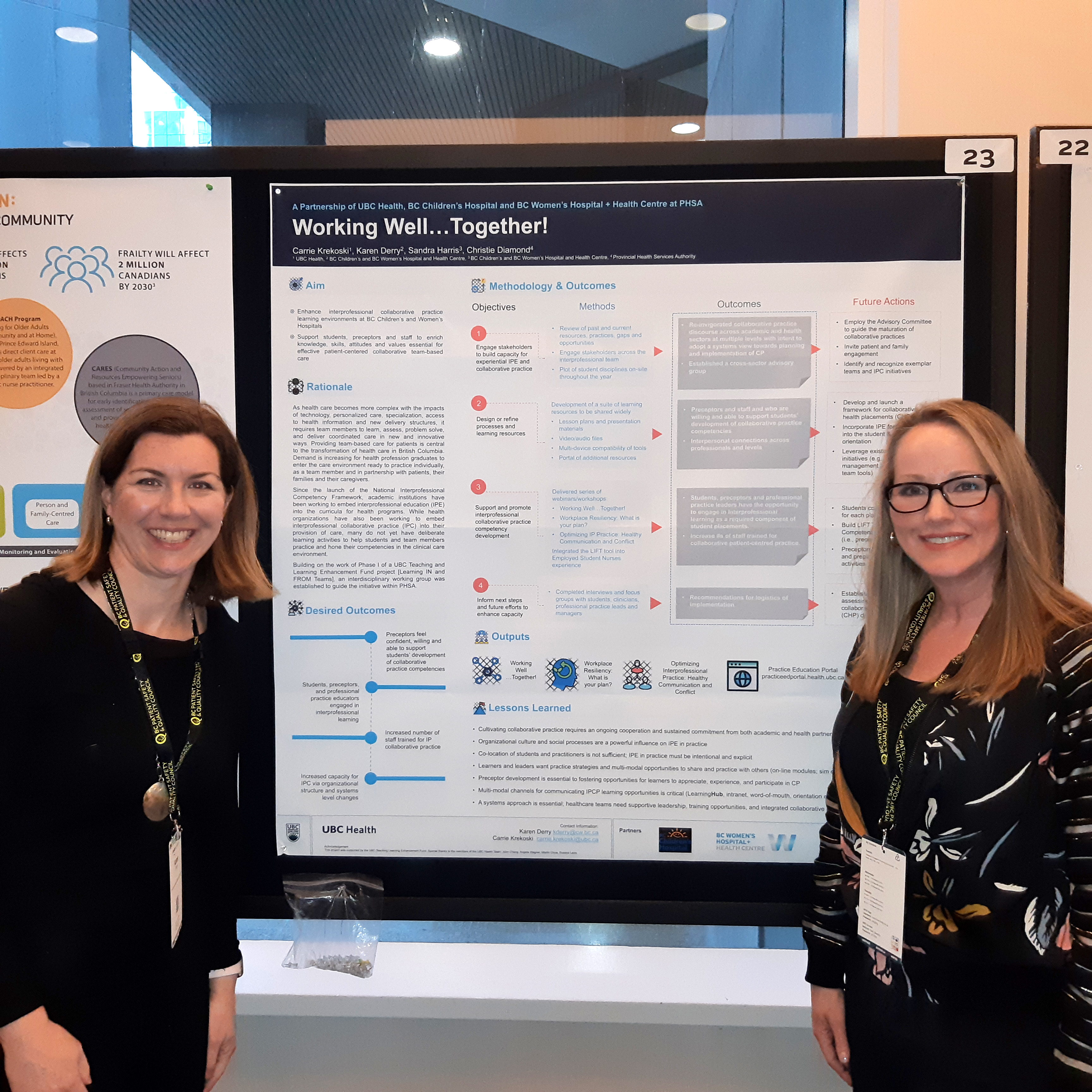
Embedding interprofessional collaborative practice into the provision of care is the focus of an innovative partnership between UBC Health and the Provincial Health Services Authority (PHSA).
In 2019, UBC Health partnered with two organizations of the PHSA: BC Children’s Hospital and BC Women’s Hospital and Health Centre. The objective of these partnerships is to advance interprofessional collaborative practice learning opportunities for both pre-licensure students and practicing professionals.
The partnership is helping move interprofessional collaborative health education at UBC from the classroom to the practice setting.
“Cultivating collaborative practice requires ongoing cooperation and sustained commitment by academic and health partners” – Carrie Krekoski, Practice Education Manager, UBC Health
A Practice Education Advisory Committee, which includes partners from UBC Health and PHSA, guided the development and implementation of a number of activities and resources that are helping clinical educators feel confident, willing and able to support students’ development of collaborative practice competencies.
Efforts included a series of three workshops that were delivered to students, clinicians, and educational leaders, highlighting key resources for thinking about collaborative practice. The series also focused on healthy communication, conflict management, workplace resilience and collaborative practice simulations.
A key resource used was the UBC Health LIFT (Learning in and from Teams) self-assessment tool. LIFT is an assessment for students through which they compare their interprofessional collaborative practice competencies pre- and post- involvement in a clinical setting. It is an example of an intentional collaborative practice learning activity that UBC Health is hoping all UBC health professional students will complete during their practice placements.
As a result of these efforts, students and clinical educators are increasingly engaged in interprofessional learning at PHSA sites. The goal is that this will lead to organizational changes that support increased collaborative practice.
“By integrating tools and activities to support collaborative practice competency development from the academic to the placement setting, a more fluid and consistent approach to learning is sought. Learners want practical strategies and opportunities to share and practice with others. Organizational culture, team and social processes are a powerful influence on IPE in practice.” – Karen Derry, Associate Director, Interprofessional Practice at PHSA
The partnership between UBC Health and PHSA is ongoing and the Practice Education Advisory Committee will inform next steps and future actions that will continue to increase capacity for interprofessional collaborative practice. This partnership highlights the need to cultivate cooperation between academic and health partners to enhance interprofessional collaborative practice environments and learning opportunities.
The storyboard ‘Working Well…Together!’ describing this partnership was presented at the Quality Forum organized by the BC Patient Safety and Quality Council in February 2020.



